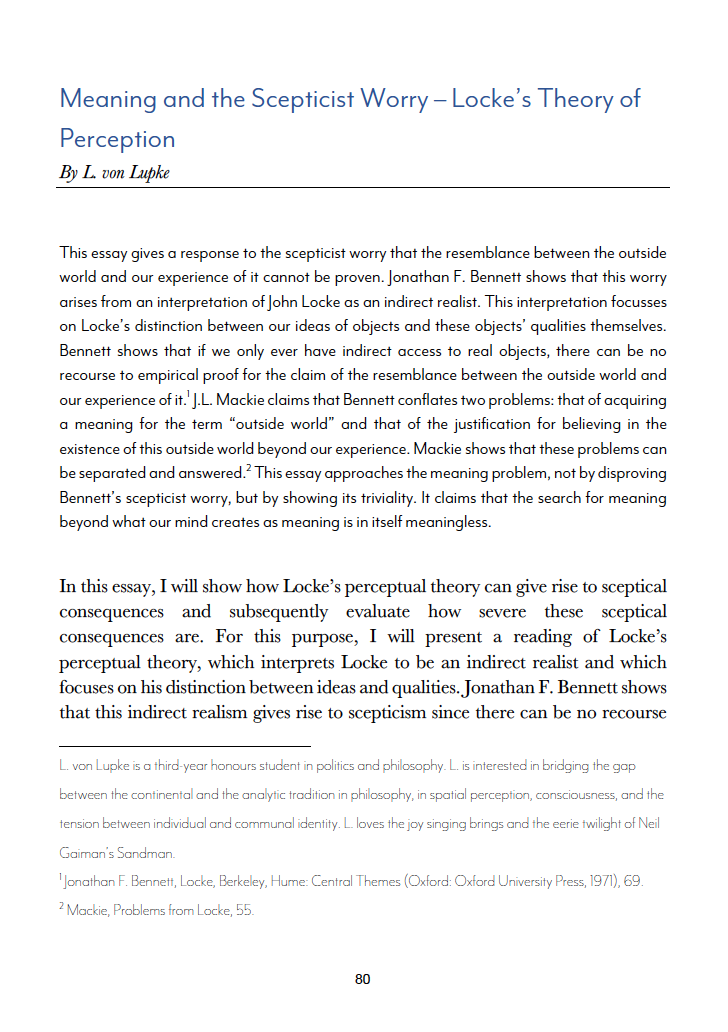Meaning and the Scepticist Worry
Locke’s Theory of Perception
DOI:
https://doi.org/10.36399/GroundingsUG.12.163Keywords:
John Locke, Scepticism, Indirect Realism, Outside World, Scepticist WorryAbstract
This essay gives a response to the scepticist worry that the resemblance between the outside world and our experience of it cannot be proven. Jonathan F. Bennett shows that this worry arises from an interpretation of John Locke as an indirect realist. This interpretation focusses on Locke’s distinction between our ideas of objects and these objects’ qualities themselves. Bennett shows that if we only ever have indirect access to real objects, there can be no recourse to empirical proof for the claim of the resemblance between the outside world and our experience of it. J.L. Mackie claims that Bennett conflates two problems: that of acquiring a meaning for the term “outside world” and that of the justification for believing in the existence of this outside world beyond our experience. Mackie shows that these problems can be separated and answered. This essay approaches the meaning problem, not by disproving Bennett’s scepticist worry, but by showing its triviality. It claims that the search for meaning beyond what our mind creates as meaning is in itself meaningless.
References
Bennett, Jonathan F. Locke, Berkeley, Hume: Central Themes. Oxford: Oxford University Press, 1971.
Locke, John. An Essay Concerning Human Understanding. Woohlhouse, R. (ed.). London: Penguin Books, 2004.
Mackie, J.L. Problems from Locke. Oxford: Oxford University Press, 1976.

Downloads
Published
Issue
Section
License
Copyright (c) 2019 L. von Lupke

This work is licensed under a Creative Commons Attribution 4.0 International License.
The CC BY 4.0 license is a Creative Commons license. This is a non-copyleft free license that is good for art and entertainment works, and educational works. It is compatible with all versions of the GNU GPL; however, like all CC licenses, it should not be used on software. People are free to: Share — copy and redistribute the material in any medium or format; Adapt — remix, transform, and build upon the material for any purpose, even commercially. The licensor cannot revoke these freedoms as long as you follow the license terms. But they must conform to the following terms: Attribution — You must give appropriate credit, provide a link to the license, and indicate if changes were made. You may do so in any reasonable manner, but not in any way that suggests the licensor endorses you or your use. No additional restrictions — You may not apply legal terms or technological measures that legally restrict others from doing anything the license permits.
Please check individual article PDF copies to see if any additional restrictions apply.







